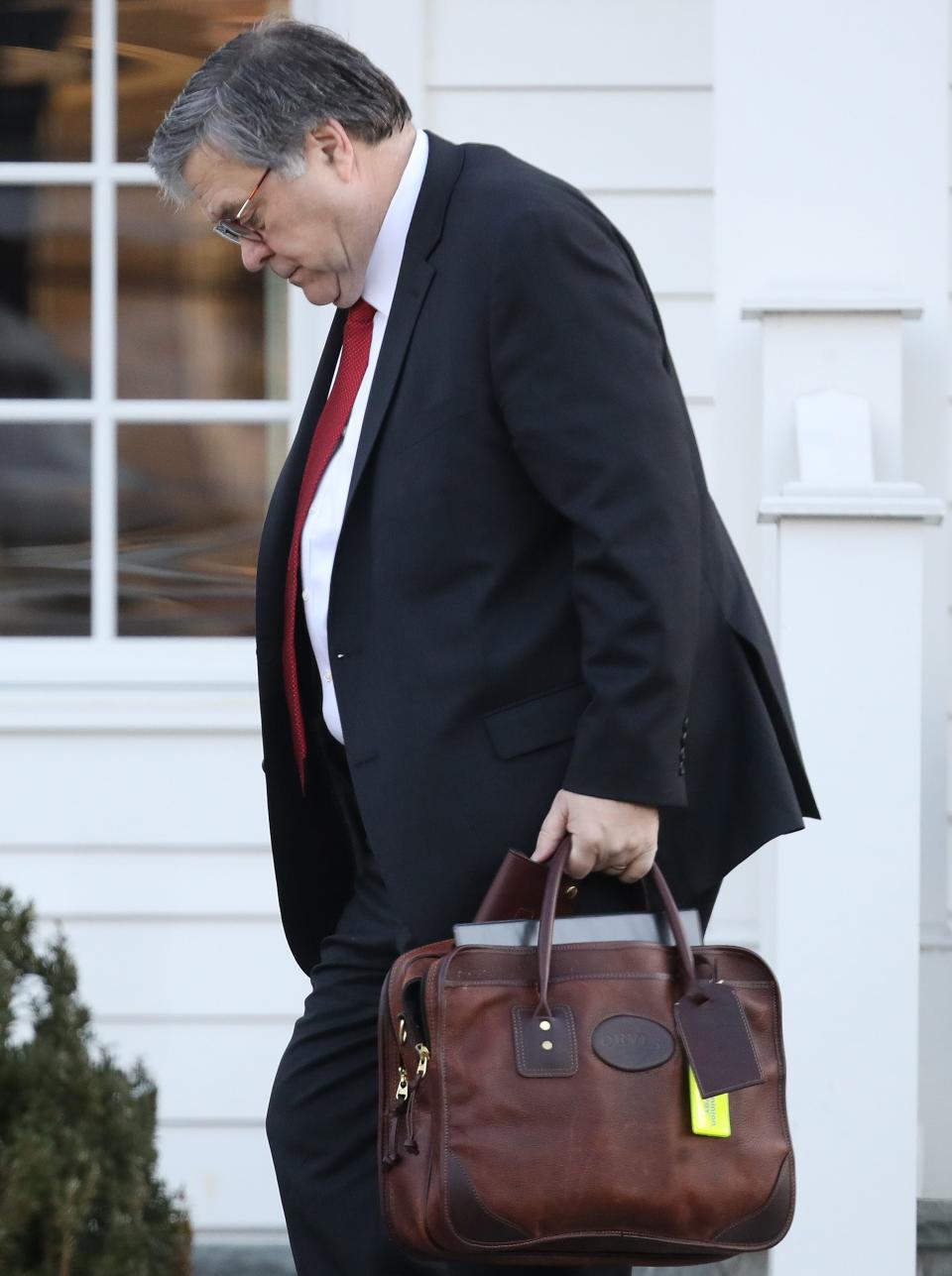AG William Barr and Congress must negotiate in good faith over Mueller report
With the House Judiciary Committee voting to authorize a subpoena for the Mueller report, an extended legal donnybrook is shaping up between the panel and Attorney General William Barr over full access to the 400-page document and its underlying evidence.
Such a protracted confrontation would be a mistake that serves no one's interest, especially the public's.
This is a problem with a solution staring it straight in the face: good-faith negotiations between the Justice Department and House members to resolve concerns Barr has with portions of the report he believes cannot be publicly released.
Congress and the public are understandably eager to sift the details of special counsel Robert Mueller's report on Russia's involvement in the 2016 presidential election. According to a four-page summary that Barr released on March 24, Mueller did not establish that President Donald Trump conspired with Russians and punted on the issue of whether Trump obstructed justice.

Since then, Barr has been subjected to relentless and unfair attacks from critics on the left, who say the letter was too brief, too stingy in quoting Mueller directly and too presumptuous in deducing that Trump did not obstruct justice after Mueller declined to reach a conclusion.
Barr deserves some benefit of the doubt. The attorney general rushed to slake the thirst of a nation hungry for news of the voluminous Mueller report by pushing out bottom-line conclusions 48 hours after the report landed at the Justice Department. He candidly quoted Mueller's inconclusive-but-does-not-exonerate language on obstruction. And he reached his own obstruction finding not by himself, but in collaboration with Deputy Attorney General (and longtime Mueller protector) Rod Rosenstein.
Beyond that, Barr is ready to testify before Congress, has "no plans" to provide an early privileged review of Mueller's report to the White House, and promises something for public consumption by mid-April.
Where the attorney general falls short, however, is in failing to distinguish between duty to the public and duty to Congress.
"He isn't acknowledging that Congress and the House Judiciary Committee have special constitutional standing that goes well beyond what the general public is entitled to," says Steven Aftergood, director of the Federation of American Scientists' Project on Government Secrecy.
Barr plans to redact material from Mueller's report that falls into four areas: grand jury material that cannot be released without a court order; intelligence methods; ongoing investigative matters; and material that could embarrass "peripheral third parties."
Apart from the grand jury matters, members of Congress should be able to view all the other material.
"We handle confidential material all the time," says Judiciary Committee Chairman Jerrold Nadler, D-N.Y. "The question before us today is not the public release of information. It's the release of information so that we can do our constitutional duties."
True, Congress can be leaky. But material from sensitive spy methods, for example, could be viewed by a limited group such as "Gang of Eight" congressional leaders who often receive classified intelligence briefings, or by top Judiciary Committee members from both parties. Bipartisan viewings can assure the public there's no cover-up in the redactions.
All of this requires Barr to work with Congress, something he has shown little inclination so far to do in Washington's highly polarized atmosphere. This cooperation could also extend to obtaining a necessary court order for releasing grand jury material for Congress to review.
Investigating prosecutors in both the Watergate and Clinton impeachment proceedings, while they operated under different laws than those that govern Mueller, obtained court orders to allow Congress to see grand jury material in those cases.
Wednesday morning's party line vote authorizes Nadler to subpoena the Mueller report when he sees fit. Let's hope it doesn't come to that. Barr and the committee ought to be able to negotiate a way out of this.
USA TODAY's editorial opinions are decided by its Editorial Board, separate from the news staff. Most editorials are coupled with an opposing view — a unique USA TODAY feature.
To read more editorials, go to the Opinion front page or sign up for the daily Opinion email newsletter. To respond to this editorial, submit a comment to letters@usatoday.com.
If you can't see this reader poll, please refresh your page.
This article originally appeared on USA TODAY: AG William Barr and Congress must negotiate in good faith over Mueller report

